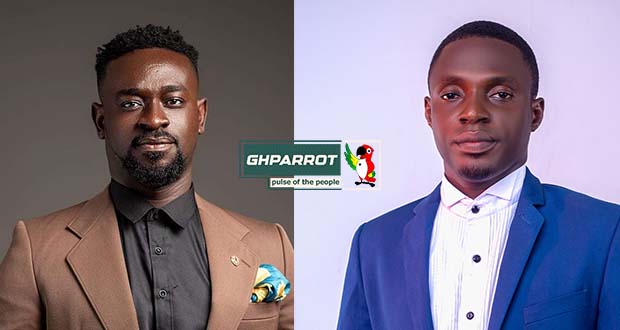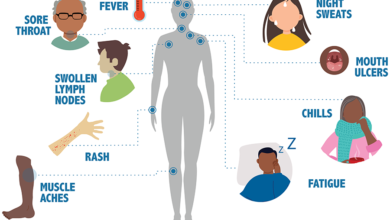#BoysLivesMatter: Why Kobby Kyei Deserves Our Full Support – Shadow

If you’ve heard the name Kobby Kyei lately, it’s likely tied to a phrase that’s been stirring conversation across Ghanaian schools, radio shows and social feeds: #BoysLivesMatter (also styled as Boys Lives Matter Too). What began as a series of conversations has become a movement, workshops, summits (The Shine Summit), school visits and media spots, all designed to push back against a cultural script that trains boys to hide pain and bottle emotions. That’s not a small thing. It’s the kind of work that, if done well, changes whole families and communities.
Below I’ve gathered some facts, the cultural context and the global parallels and made the case for why Kobby Kyei’s campaign deserves support from concerned citizens, institutions and partners. This is not a “boys vs girls” push; it’s a call for balance that strengthens society as a whole.
Recommended: 5 Reasons Why Educated Marriages Fail While the Less Educated Thrive
What Kobby Kyei is doing in plain terms
Kobby Kyei, an online journalist and youth advocate, launched the Boys Lives Matter initiative to create safe spaces for boys and young men to express emotions, receive mentorship and access practical life skills. He’s hosted editions of The Shine Summit in schools (e.g., PRESEC Legon), appeared on major media platforms and run community outreach and charity activity under the campaign brand. The project explicitly clarifies it’s not anti-girls’ empowerment but seeks to address emotional neglect of boys.
Why that matters: Kobby’s public storytelling, interviews, school summits and social posts make the problem visible and starts community-level conversations that are often missing or in most cases ignored.
The problem: cultural scripts that cost us dearly
Across many Ghanaian families (and beyond), boys are socialized with rules like “boys don’t cry,” “be tough,” and “don’t burden others with feelings.” Kobby and others are pointing to real consequences: suppressed grief, untreated mental health issues, emotional detachment in adulthood, and cycles of poor communication within families. His interviews and media appearances highlight men who say they cry alone in cars, or never learned basic life-affirming phrases as children. Those anecdotes track with broader research on male mental health and emotional socialization worldwide.
Global parallels: this is not just a Ghana problem
Movements and campaigns in other countries (from charity programs in the UK and Australia to school-based emotional literacy curricula in North America) show a common truth: when boys receive emotional education and healthy role models, rates of violence, substance misuse, and relationship breakdown fall; empathy and mental health outcomes improve. Kobby’s model, school talks, media amplification, community mentorship mirrors successful components used globally, adapted for local culture and norms. Supporting him is effectively supporting a proven mixture: awareness + safe spaces + skills + role models.
No imported model fits Ghana exactly, of course — but the principles transfer: teach emotional vocabulary, invite male role models to model vulnerability, and link interventions to schools and families.
Local edge: Why Kobby’s approach fits Ghanaian realities
Culturally attuned messaging: Kobby frames his campaign as complementary to girl-child empowerment, reducing backlash risk and making the conversation easier for parents and community elders to accept. In a context where gender conversations can quickly become polarized, this is strategic and smart.
School-first strategy: By taking The Shine Summit into prominent schools like PRESEC – Legon, the campaign reaches boys at formative ages. The same approach that works in many local HIV, life-skills and anti-bullying campaigns.
Media leverage: Kobby’s background in online journalism and his social platforms mean the message travels from X/Facebook to radio and TV interviews letting the campaign seed public conversation and normalize the topic.
The objections you’ll hear about #BoysLivesMatter and how to respond
“This takes resources away from girls.” Kobby and others explicitly say it’s not a competition. The healthiest societies invest in both. Emotional first-aid for boys improves domestic relationships and benefits girls too.
“Boys are already privileged.” Privilege in one domain doesn’t preclude vulnerability in another. Emotional neglect is real and has measurable social costs. Addressing it doesn’t erase other struggles; it reduces harm across the board.
“Will this change anything?” Real change takes time, but early wins are measurable: increased help-seeking, fewer disciplinary problems at schools, and more empathetic peer cultures, and all outcomes seen elsewhere when boys’ emotional education is prioritized.
Concrete ways to support Kobby Kyei (and why each matters)
If you want to move beyond “liking” a post, here’s how to make a difference:
Attend and sponsor the events (school summits, workshops). These are the direct delivery mechanisms for mentoring and skills-building. Sponsorship expands reach.
Partner with mental health professionals and schools. Add counselors and trained facilitators to Kobby’s events so conversations have follow-up care.
Amplify his media work. Share interviews, clips and posts — social reach equals cultural permission to talk about hard things.
Fund pilot programs in schools (emotional literacy curricula, teacher training) so the campaign can produce data and replicate what works. Data attracts larger funders.
Invite corporate CSR buy-in. Companies can sponsor safe spaces, hotlines and training as part of employee wellness and community responsibility.
The 5 Mental Health Benefits of Daily Exercise
What success looks like: short and long term
Short term: boys reporting greater willingness to speak about stress, schools noting improved peer conflict resolution, local media adopting kinder language about masculinity.
Long term: fewer untreated mental-health crises, more emotionally literate fathers, and communities where masculine strength includes empathy and self-knowledge.
This is the difference between generations that repeat old harms, and generations that repair them.
This is a moment we shouldn’t let pass
Kobby Kyei’s #BoysLivesMatter campaign is doing something uncomfortable in the best possible way: naming a hidden problem and sending teams into the places that matter, schools, radios and neighborhoods to start repair work. The initiative already has traction in mainstream outlets and on social platforms; with strategic partnerships, resources and compassionate amplification, it can move from a conversation to measurable social change.
If you care about safer families, healthier communities and a future generation that knows how to hold pain and care for others, back this work. Attend more summits. Sponsor a school. Share a story.
Kobby Kyei can’t carry this alone; every movement needs hands so reach out to Kobby Kyei and his team.






